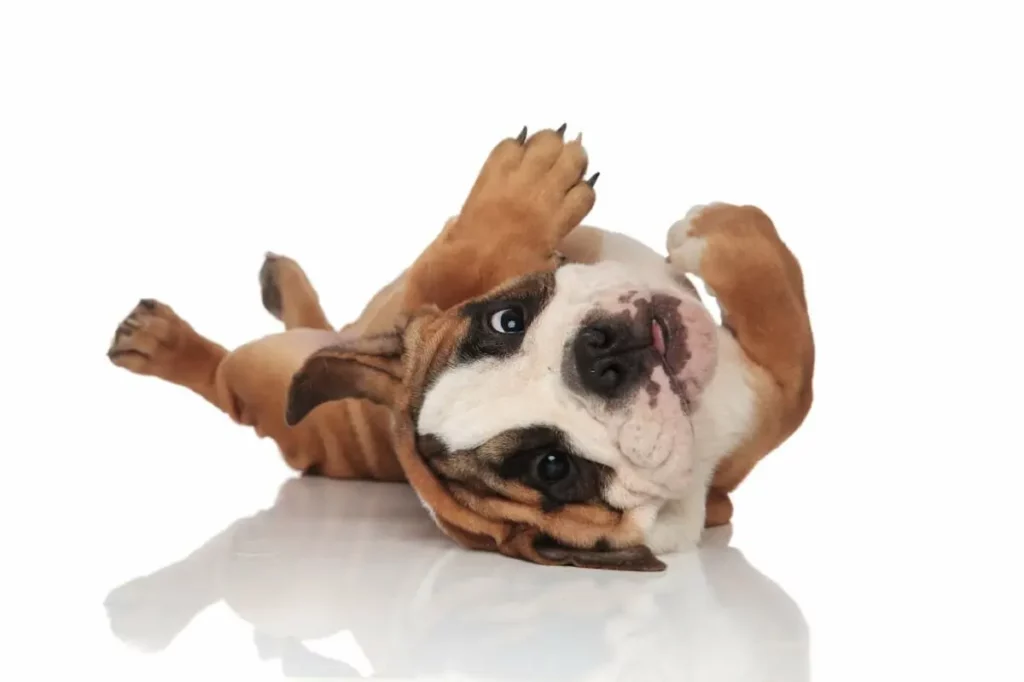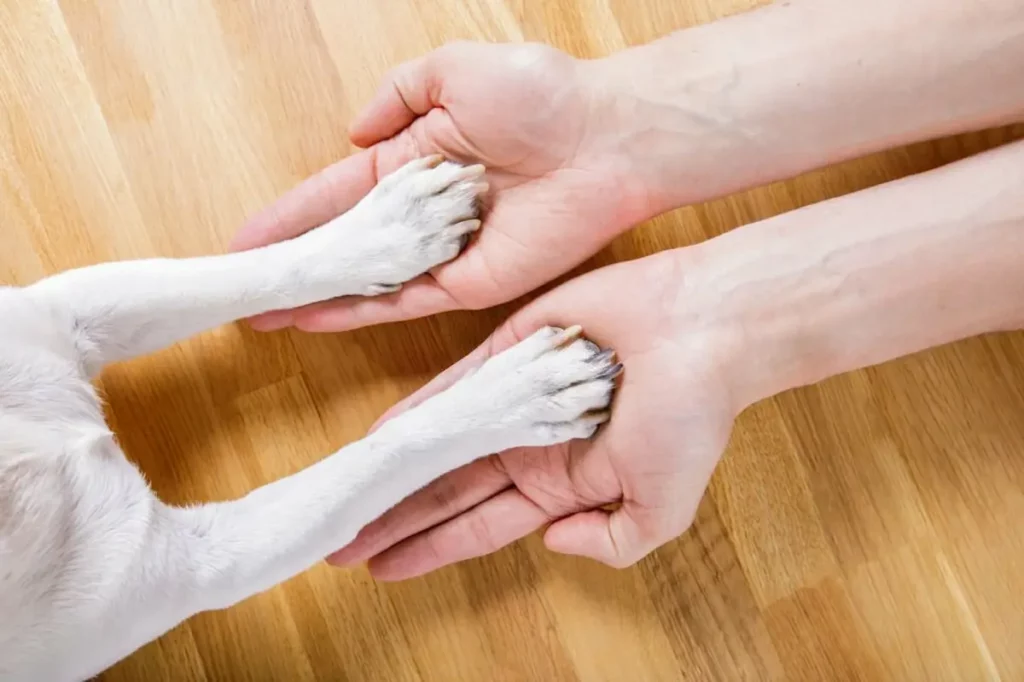Can dogs drink milk? It’s a confusing topic for many dog owners.
Is milk safe for dogs since they drink milk as puppies? The short answer is no; I don’t recommend giving your dog cow milk or dairy products. While your dog might be okay to have the occasional dairy treat, dairy should not be a regular part of any dog’s diet.
Just as there are people who cannot have milk, there are dogs who may have a terrible milk reaction. On top of that, standard cow, goat, or other dairy provides no real nutritional value to dogs, so there’s no reason to include it in their diet.
Keep reading to find out more about how milk makes its way through your dog’s system, how it could be dangerous, and what you can do to make sure you don’t accidentally make your dog sick because of dairy products.
What Happens When A Dog Drinks Milk?
When the milk enters the body, the digestive system must break down the lactose into its more basic sugar components. The two base sugars in lactose are easy to absorb, but breaking them down is not always easy for dogs.
Breaking down lactose requires a specific enzyme called lactase. This enzyme will split the lactose into its base parts.
Can A Dog Drink Milk?
As you can see from my answer above, yes it’s sometimes ok, but it could make them sick. Not only do they produce less lactase after they are no longer feeding as puppies, but some also don’t produce any at all.
You might wonder why some dogs can process milk better than others. Not every dog produces the lactase necessary to break down the lactose in dairy products. This means that some canines will not break down lactose that enters their system, and they will likely get sick from the dairy, just like people who have lactose intolerance or allergies do.
If A Dog Cannot Process Milk, What Will Happen To Them?
If your dog doesn’t have the lactase necessary to break down the lactose in milk, they’ll have a gastrointestinal response that will attempt to rid their body of the food.
Symptoms of such a reaction to milk or dairy products can include:
- Diarrhea or loose stools
- Vomiting
- Gas
- Appetite loss
- Weight loss
- Abdominal pain
- Excessive scratching
If you notice your dog exhibiting any of these symptoms (even if the case is mild) after having dairy products, you can assume that it does not produce enough lactase. You should make sure to avoid giving them dairy in the future if this occurs.
Is There Anything Else Should I Watch For?
When your dog’s system starts exhibiting signs of loose stools or vomiting due to dairy ingestion, you need to be careful about the risk of dehydration.
Just as our bodies lose water when we have a case of food poisoning or digestive troubles, your dog does, too. Severe dehydration can be recognized by:
- Sunken eyes
- Dry gums
- Lethargy
- Loss of elasticity in the skin
- Weakness
- Collapse
When your dog is having a bad reaction to milk or dairy, be sure to keep an eye out for dehydration as well.
But Don’t Puppies Drink Milk?
Yes, puppies raised with their mothers drink their mothers’ milk. While dogs are puppies, they have a ton of lactase in their systems, which allows them to break down the milk they take in while nursing. There is a big difference in a mother’s milk from a dog than that of cow milk or goat milk.
As puppies stop nursing, however, most stop producing lactase as they no longer need it.
How Do I Feed My Puppy Milk?
Can dogs drink milk while puppies do? Yes, but not any milk will cut it. Puppies usually feed on their mother’s milk, which is different from cow or goat milk. If you are raising a puppy that should still be nursing without their mother, you will want to consider a milk replacement formula. Talk to your vet to choose the right procedure and feeding scheduled for your puppy!
My Dog Can Digest Milk and Dairy Products?
Many dogs can eat some milk or dairy without any side effects. But can they drink it every day? I don’t believe they should, even if you don’t see any side effects. The enzyme they need is not consistently produced. Therefore it’s not a good idea to spoil your dog with dairy outside of an occasional treat. You will find that many canines are lactose intolerant just like many humans have lactose intolerance.
Dairy items like ice cream that have high sugar content are a double no-no since they can cause both lactose intolerance symptoms as well as lead to diabetes with prolonged exposure (eating).
Is Milk Good For Dogs?
Is milk as good for dogs to drink as it is for most humans? No, it’s not. It doesn’t provide essential nutrients to your pet in quantities that they need. It’s a good policy to not get into the habit of giving your dog things to eat, if it isn’t a necessary part of their diet.
Is Milk Bad For Dogs?
Even if your dog doesn’t show any side effects when they have dairy products, that doesn’t the risk is over.
Dairy products are often high in fat, and this can cause pancreatitis.
What Happens When A Dog Gets Pancreatitis?
Pancreatitis occurs in canines whenever they are consistently getting too much fat in their diet. Even just one piece of very fatty meat can make a dog sick. Your dog’s pancreas will overproduce enzymes, which in turn cause pancreatitis.
Signs of this disorder include:
- Hunched back
- Repeated vomiting
- Bloated, pain in abdominal
- Diarrhea
- Loss of appetite
- Dehydration
- Weakness
- Fever
If you see these symptoms in your dog after they have a high-fat dairy snack or another high-fat snack, visit a vet immediately!
Conclusion
The question today shouldn’t be, “Can dogs drink milk?” because many dogs can drink milk. The question should be, “Is milk safe for dogs?” and “Can they consume milk every day?” For me, the answers are no and no. Milk, which can be digested, doesn’t give your pet any nutritional value and can make them sick. If dogs consume milk every day, they might develop pancreatitis.
Pay attention to what you’re feeding your dog. The best dog food brands won’t have much dairy in them, but they will have all the nutrients your dogs need! Focus on giving your dogs what they need, not what you think they might enjoy.


